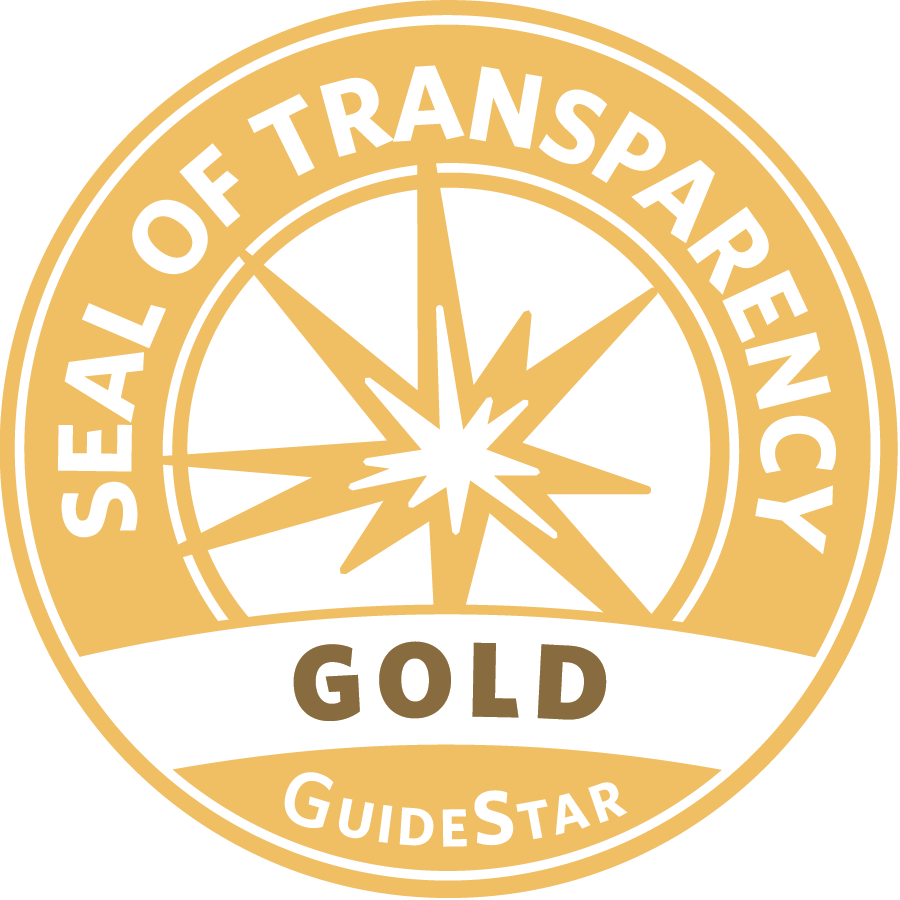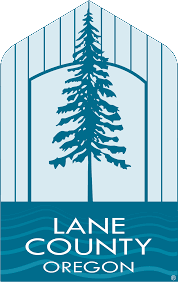Will We Find the Courage to Face the Housing Reality?
Aug. 1, 2014 - Written and Cartoon By: Erik de Buhr, Edited By: Guy Maynard
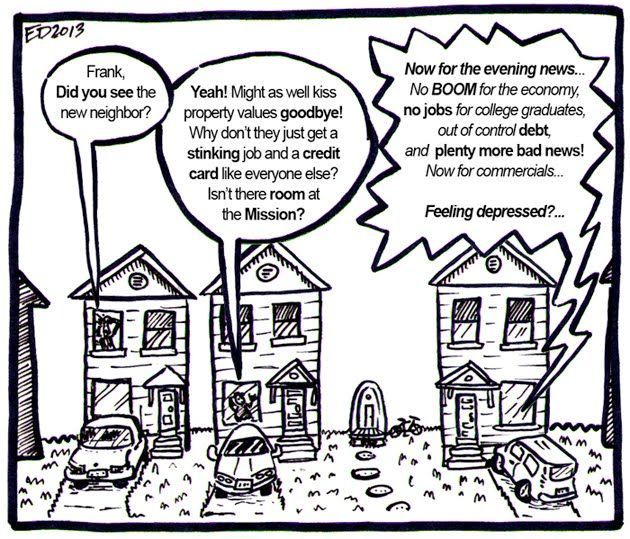
In late June, Community Supported Shelters set up two Huts at the Wesley United Methodist Church on Oakway Road. These two Huts only took about four hours to set up with our trained volunteers and lots of help from our community partners.
We felt great about that, but I think the more notable achievement in this project was the level of intention shown by the organizers within the congregation of the church. They wanted to make the Huts comfortable and, at the same time, not so comfortable that the people using the Huts would stagnate in their efforts toward finding personal stability. The church folks knew from the start that they wanted the Huts to be transitional housing, and that intention can be communicated to the guests as soon as they walk in the door. Setting the tone in the beginning is key to a successful project. This Hut placement was successful because everyone took the time to consider the long-term well being of people affected.
Witnessing such thoughtfulness makes it harder to face the fact that transitional housing is such a dire need and that our society as a whole is so scared of it. This fear seems to arise because people want to believe that we have a perfect society already and are afraid that recognizing the need for micro-shelters for people in transition means acknowledging our imperfection. On our shop door we have painted some words of the social and political activist Jane Adams: “The good we secure for ourselves is precarious and uncertain until it is secured for all of us and incorporated into our common life.” Many are at an immediate disadvantage in our society. Micro-housing to provide them safety and some protection from the elements is one small piece of the solution puzzle. Still, this approach will take some getting used to by people who are, at the moment, secure and stable.
Finding locations for Huts has proven to be the most difficult task that we’ve had to face in getting Huts up. There are a lot of preconceived ideas about the type of people being served by the Huts and what kind of trouble they may bring to a neighborhood. A couple points are important to recognize here. First, people in need of transitional housing are more diverse than the colors in the rainbow. In the past three years, even our family has needed a program like this during a transition from one place to another that took about ten months due to limited financial resources. Second, most people hold onto distorted ideas about this diverse group of people because they generalize based on a small percentage known as the “chronically homeless.” This distortion mixed with the fear of admitting our imperfection makes it rather difficult to make any real progress for these people—and creates the climate that makes it challenging to find places for the Huts.
In mid-July we put up two Conestoga Huts for our family of three behind our shop and office on Grant Street in Eugene. We were able to afford the huts by getting a low-interest community loan from some supporters. We believe that we need to do whatever we can to restore the balance to our own communities to make it better for the children of tomorrow. We must let go of self-interests unless they serve the whole. Otherwise, all of us will pay the consequences in the long run. Downsizing our personal life into Huts is a life-style choice for us and a testimony to the fact that without transition nothing will ever get better.
News & Events
To stay connected and learn about upcoming events, subscribe to our quarterly newsletter.
If you are a member of the media who is seeking information or would like to request an interview, contact community@cssoregon.org.
February 2025
27
28
29
30
31
1
2
3
4
5
6
7
8
9
10
11
12
13
14
15
16
17
18
19
20
21
22
23
24
25
26
27
28
1
2
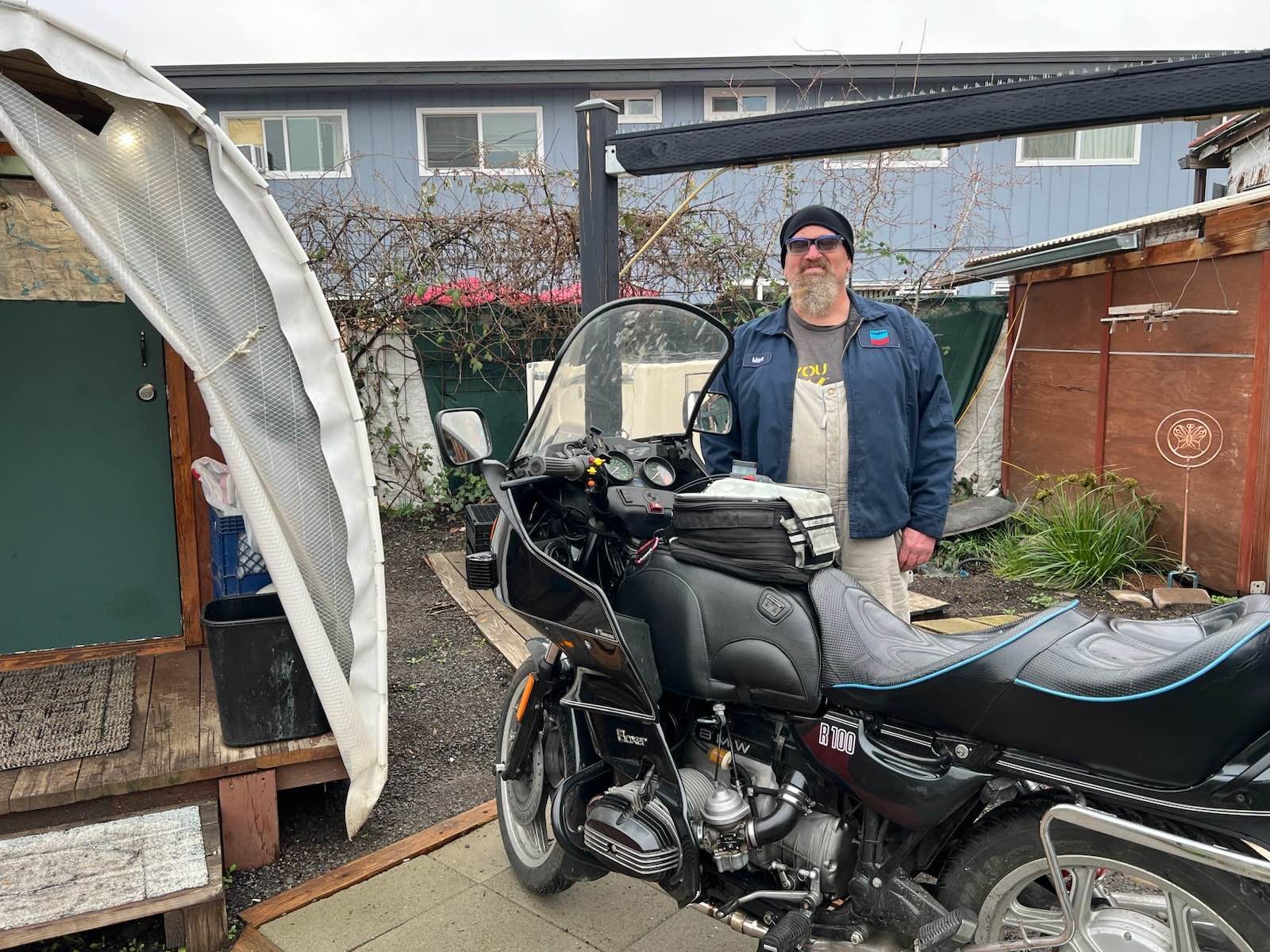
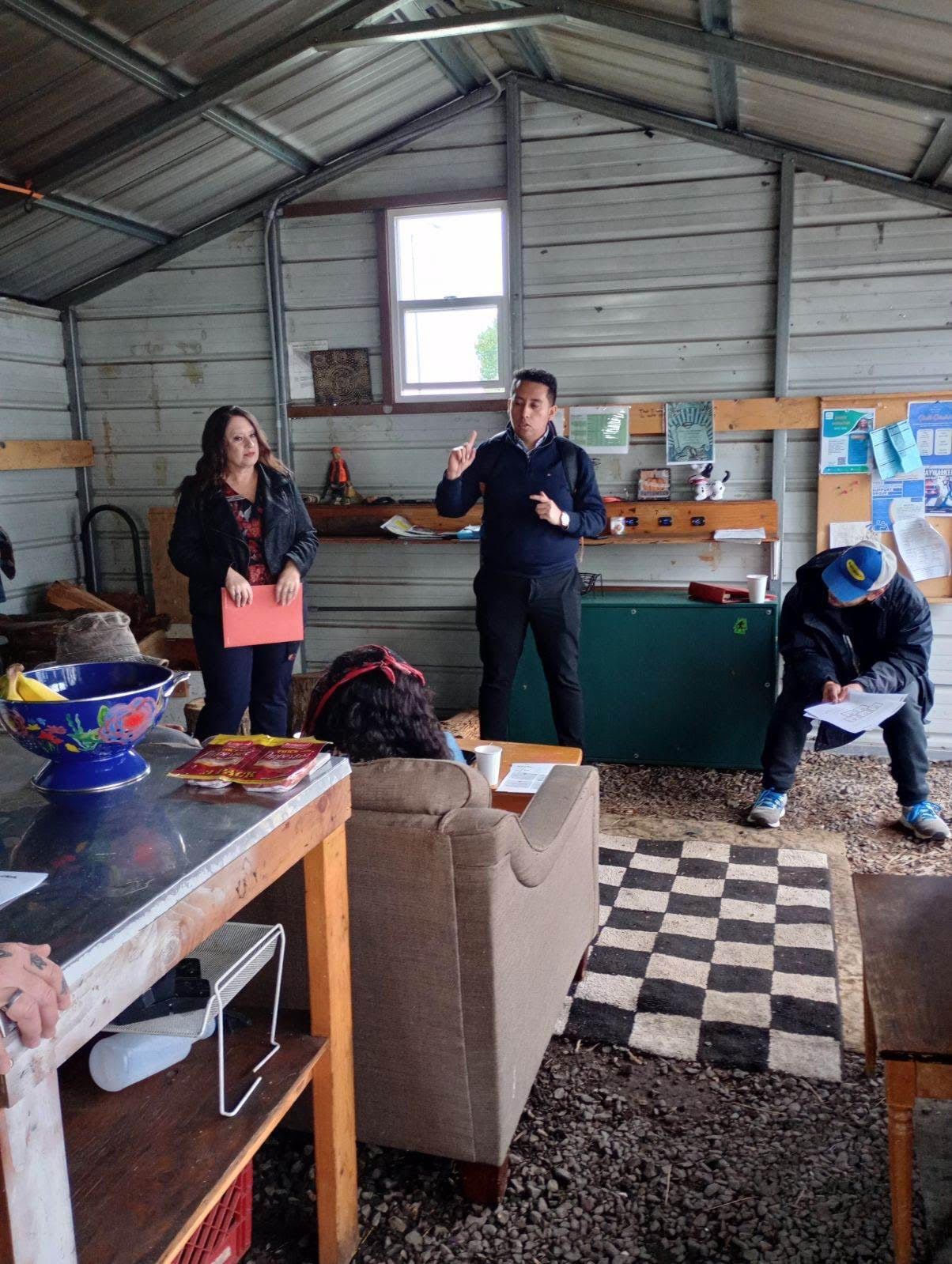
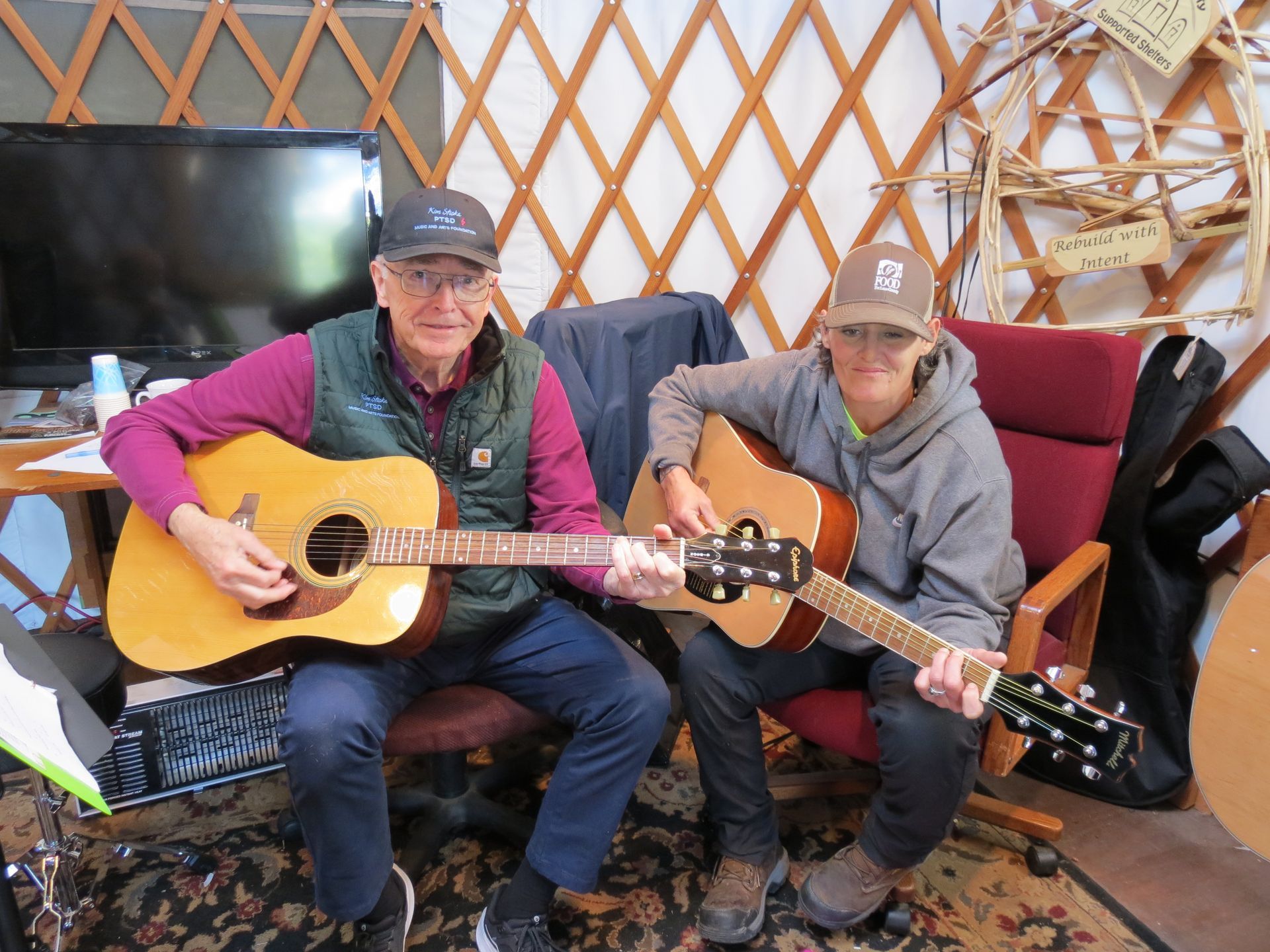
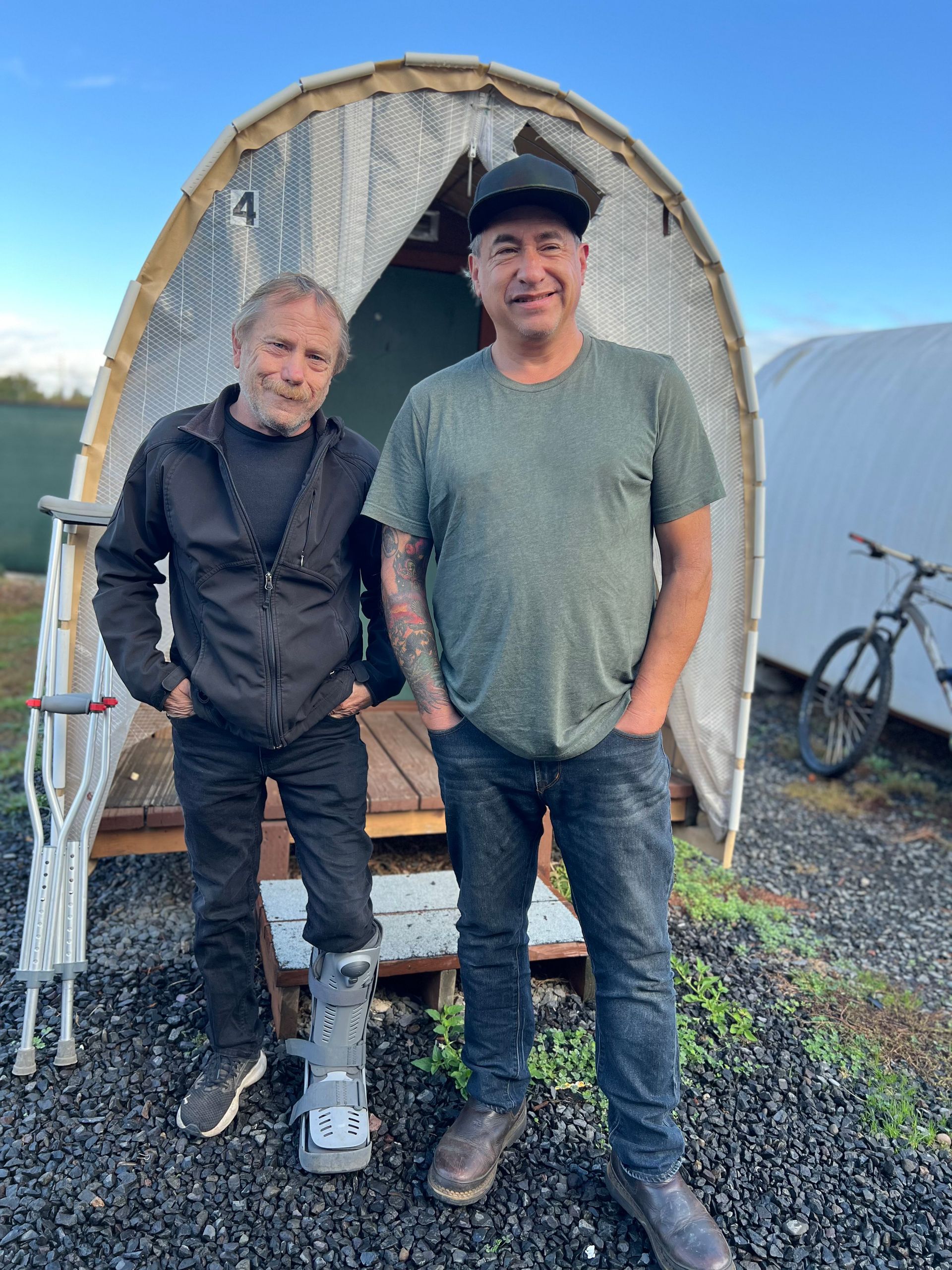
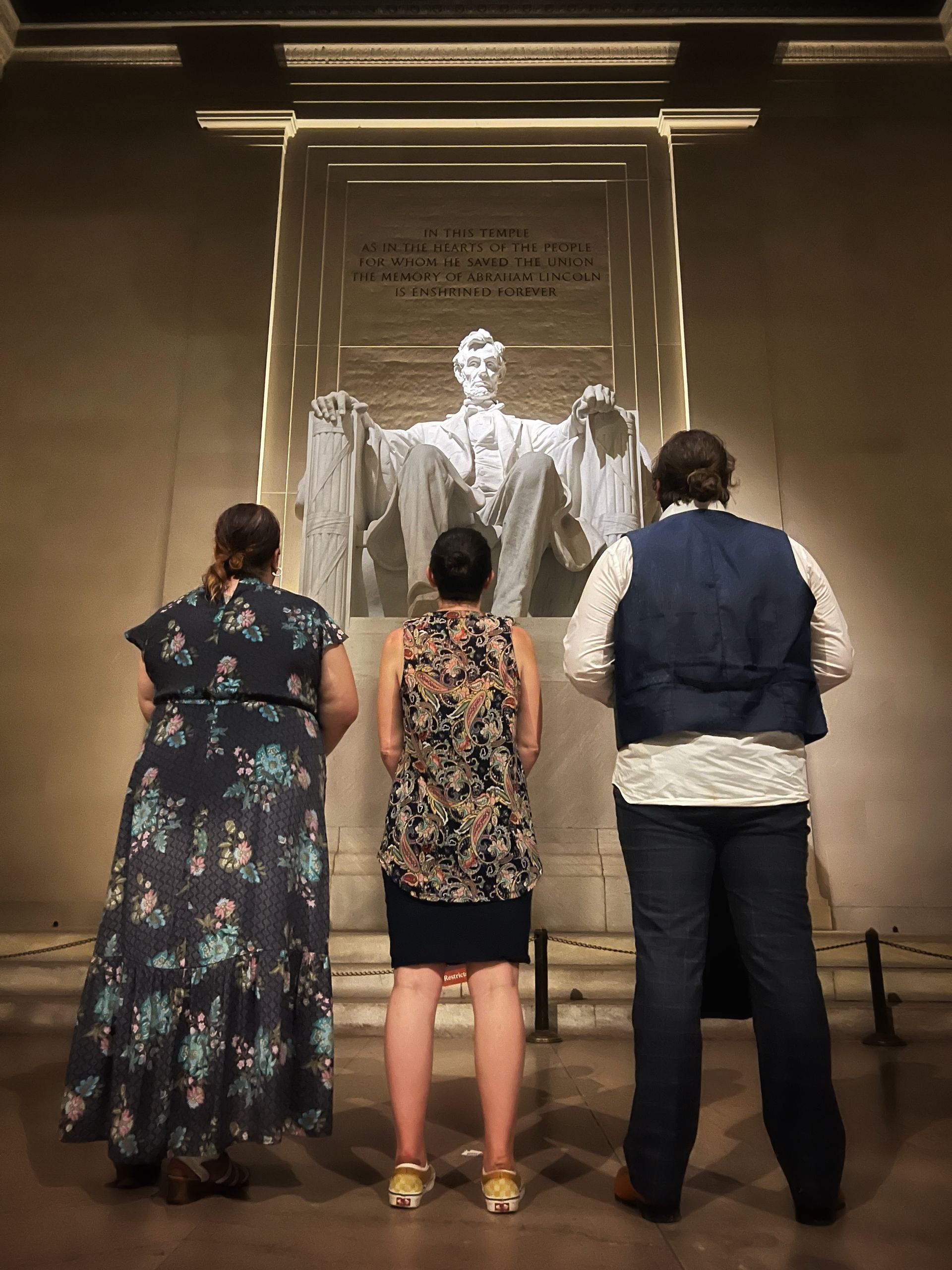
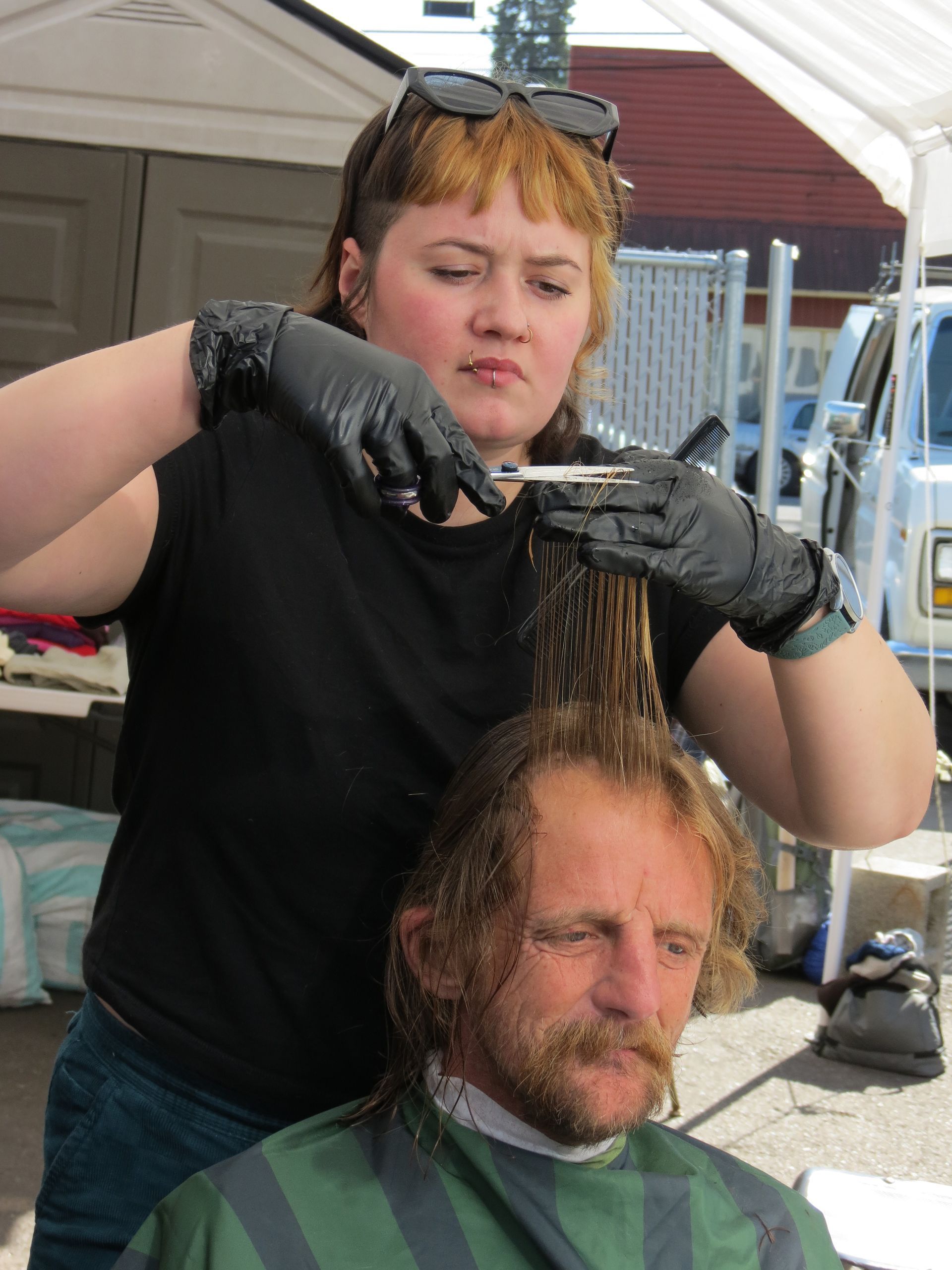

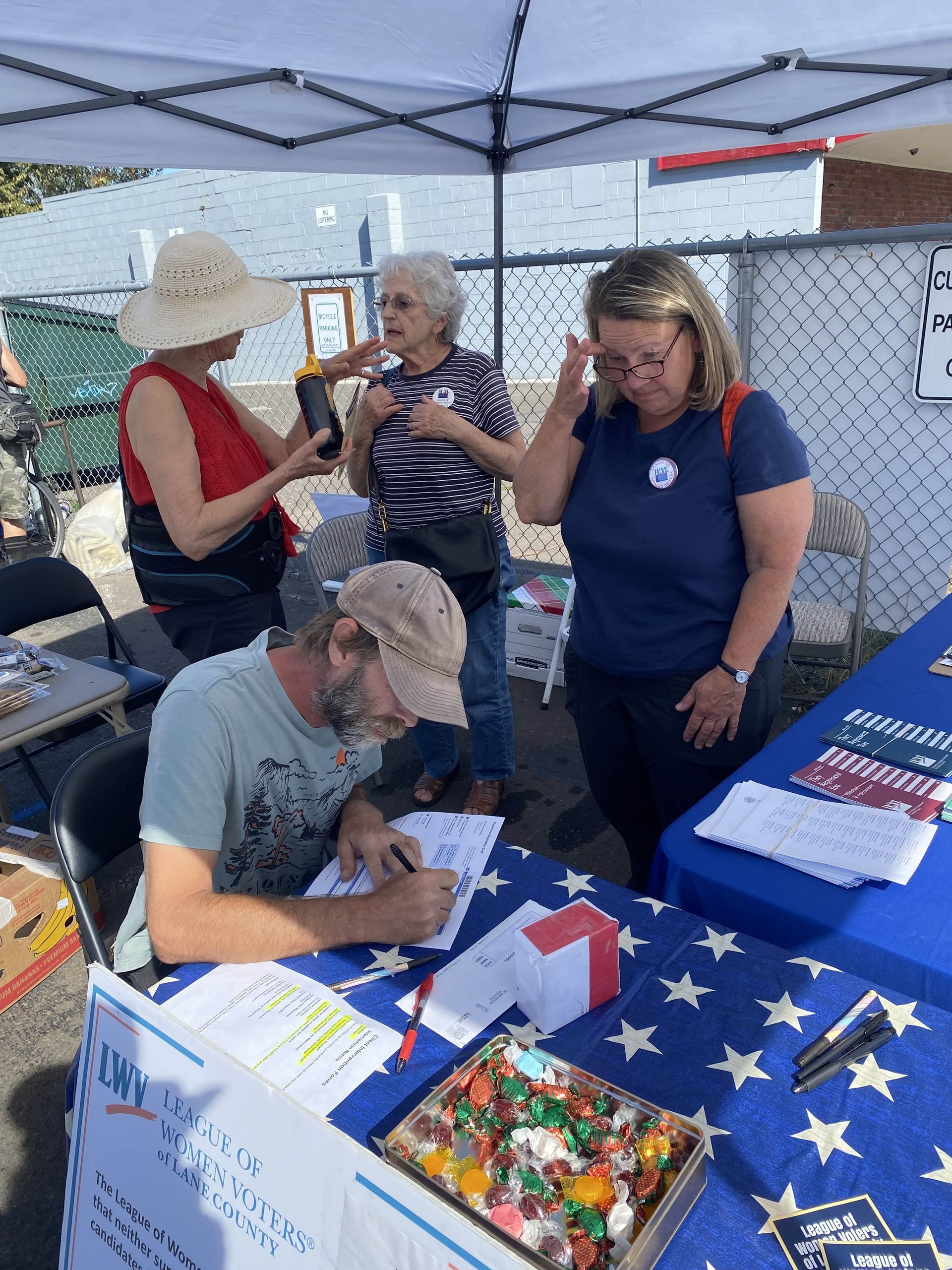
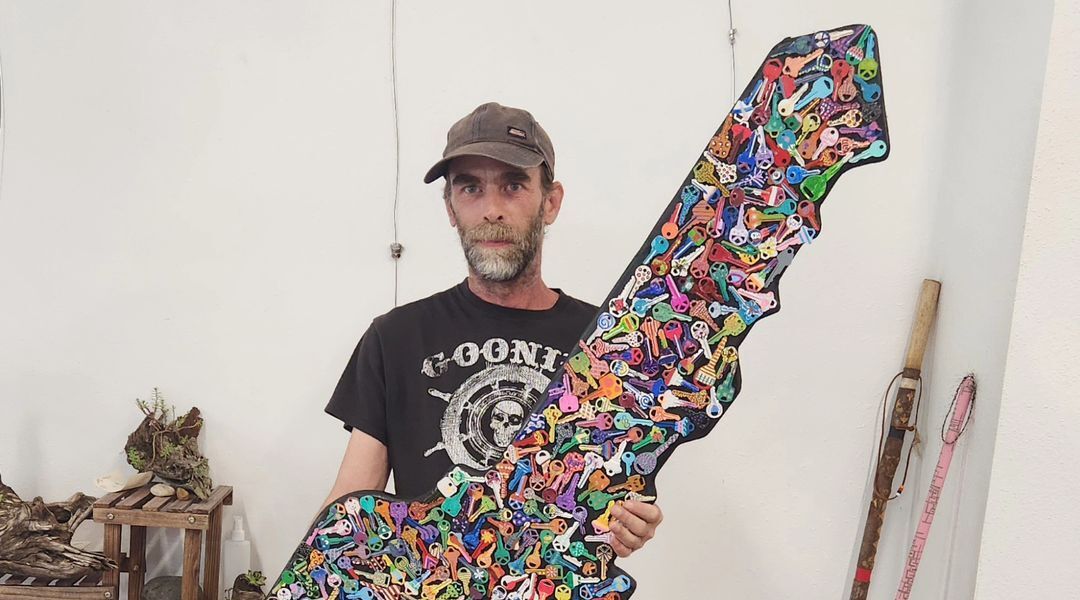
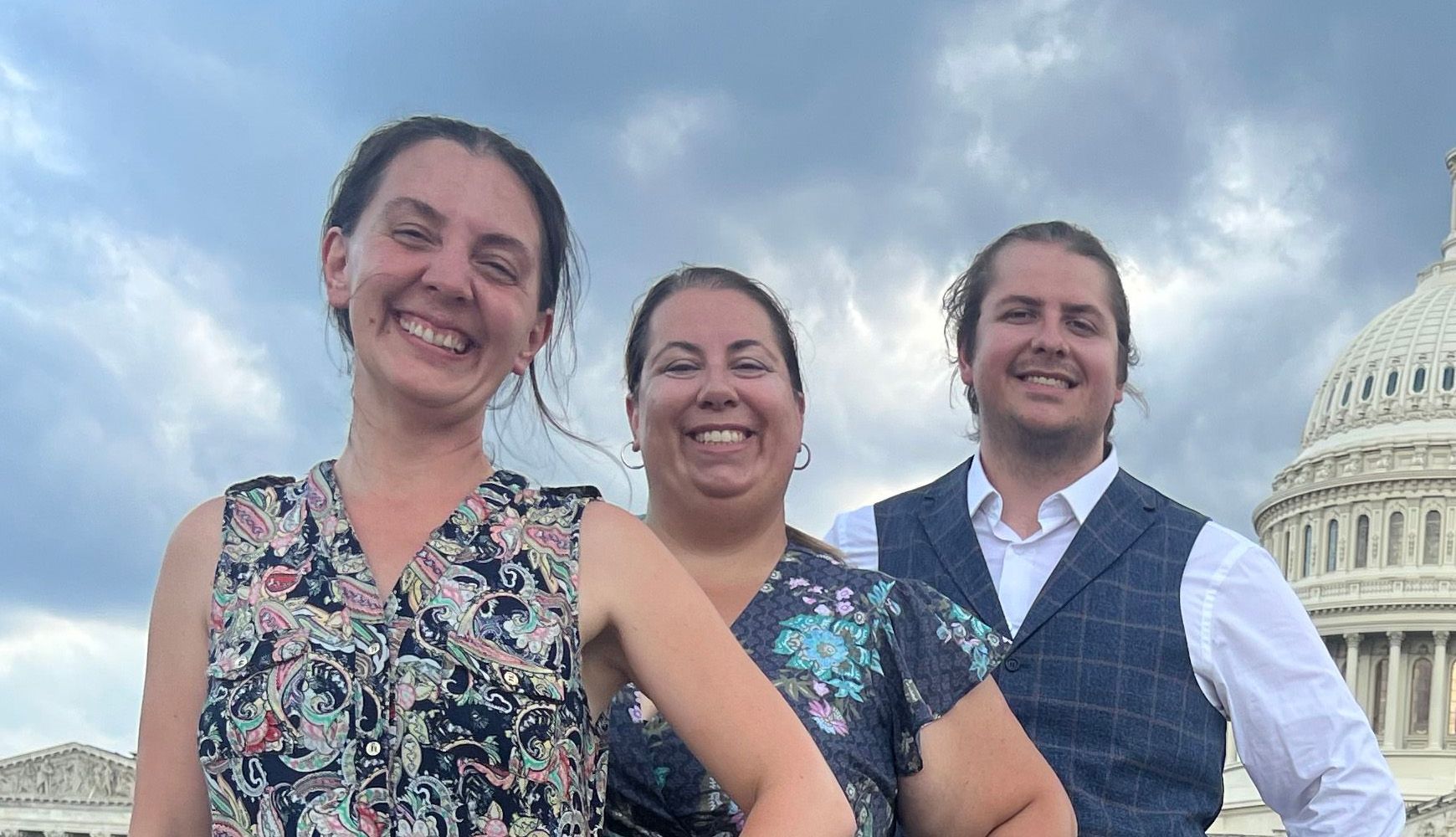
Community Supported Shelters
1160 Grant Street
Eugene, OR 97402
Public Office Hours:
Tue-Fri, 1-4 p.m.
Finance and Tax Information
We are a 501(c)(3) organization, and you may take a tax deduction to the full extent allowed by law for your contribution to us.
(EIN#: 46-2377054)
Newsletter
To stay connected to CSS and learn about upcoming events, subscribe to our quarterly newsletter.
All Rights Reserved | Community Supported Shelters | This site is powered by Neon One


